
Lean Digital Manager
Designing the factory of the future with Lean 4.0
How do you combine lean principles with the technologies and capabilities of digitalized networks in the value-added chain? By training employees to become decision-makers who practice Lean 4.0 to successfully implement lean and smart processes. To do so, companies should start with their experience in lean transformation, which in many cases has taken years to develop. ROI-EFESO’s Lean Digital Manager certification course can teach you how that works.
Challenge
Advantageously combining lean management strategies and the benefits of lean production with Industry 4.0 technologies.
MoreROI-EFESO approach
ROI-EFESO’s Lean Digital Manager certification program demonstrates how digitalization of lean production works. The focus is on both the right technologies for lean production and the latest management methods.
MoreLessons learned
Digitalization drastically accelerates the transformation of shop floor management from analog to digital; expertise in technology alone is not enough to successfully lead Industry 4.0 teams.
MoreROI-EFESO success model
Combining applied scenarios and best practices for lean production and digitalization – especially during practical simulations at ROI-EFESO IoT Fab, which put theoretical knowledge into practice.
MoreThe course builds on a fundamental understanding of processes and value streams in the factory. Participants will develop greater expertise in methods, management skills, and digital applications to the point where they can benefit from combining the advantages of lean production and Industry 4.0 at their workplace. To accomplish that, the five-day program provides a concise overview of the latest trends and technologies in Industry 4.0 and shows which of them are particularly helpful in lean production. Each training module relies primarily on practical use cases to promote learning achievement that broadens existing theoretical knowledge. At the same time, participants learn about the changing role of management in digital transformation and what skills will help you thrive in a VUCA world – whether that involves the shop floor, the production line, quality assurance, or logistics.
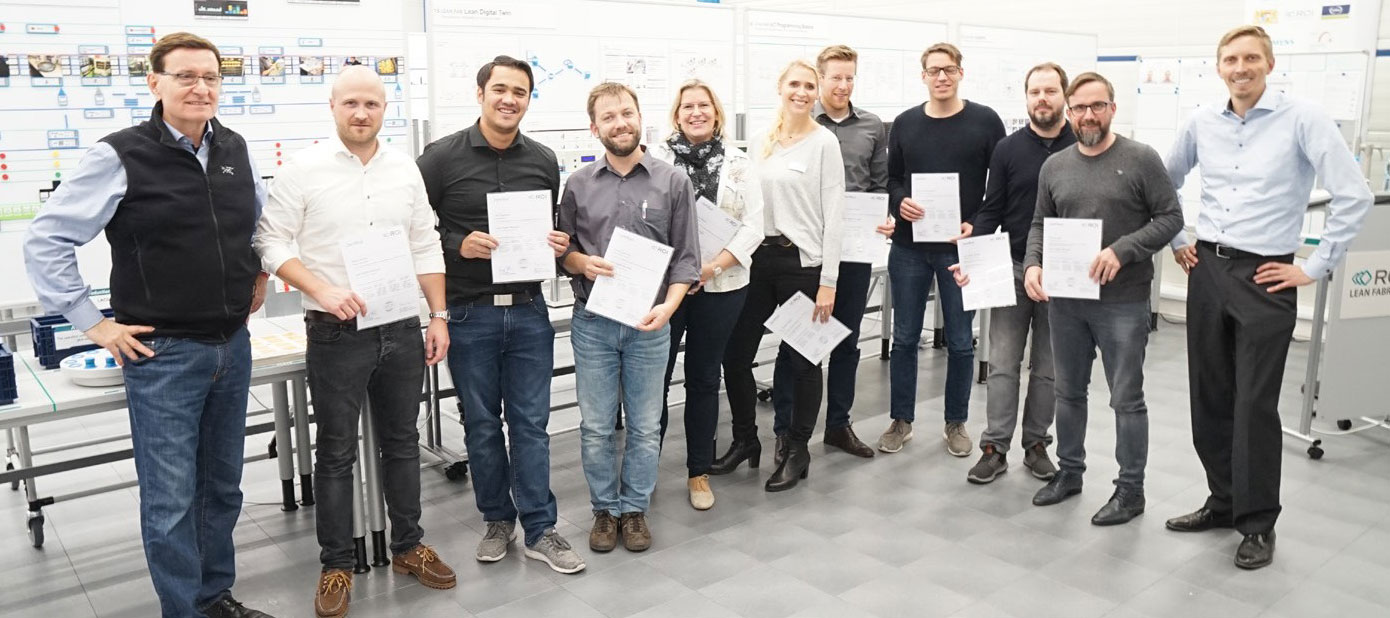
“The Lean Digital Manager course gave me practical insights into the topic. I feel prepared with the necessary expertise to start Lean Digital in my own company.“
Manuela Bittner
Experiencing digital lean technologies
Historically speaking, lean culture is an analog one: much of it uses boards, printed visualizations, delivery notes, manufacturing orders, and datasheets. That’s why many lean managers have reservations and anxiety about digitalization. But at their core, lean management and digitalization are two kinds of transformation that complement each other very nicely. That’s what up-and-coming lean digital managers will learn about at ROI-EFESO IoT Fab, which will have over 20 technology stations arranged in a factory-like setting. During a two-day seminar, they will see first-hand what synergies are possible from the fusion of Lean and Industry 4.0, for instance the digitalization of classic lean elements like the supermarket or real-time monitoring and optimization of lean KPIs like Takt time, OEE, and SMED.
The main educational objective is to generate concrete ideas and solutions from the newly acquired knowledge for use at the participants’ own workplaces. This is true of course not only for the two days spent at ROI-EFESO IoT Fab, but also for the other three training modules offered. The subject matter of these are as follows:
- The fundamentals and applications of Industry 4.0, relying mainly on practical exercises and examples
- Digitalizing lean production through the use of digital linking of systems, processes, and products
- The role of management in digital transformation
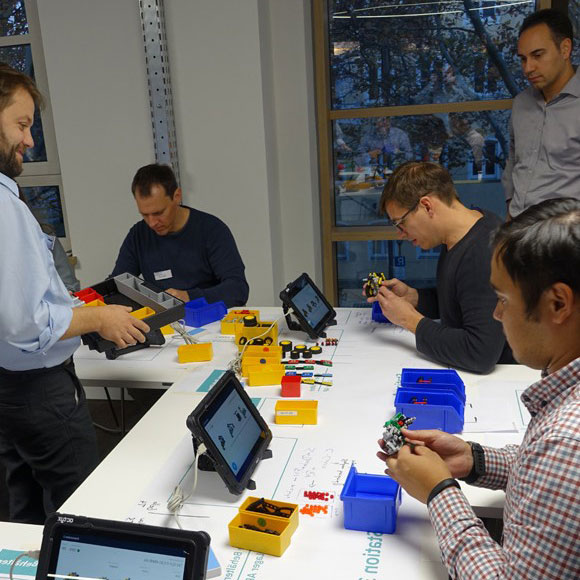
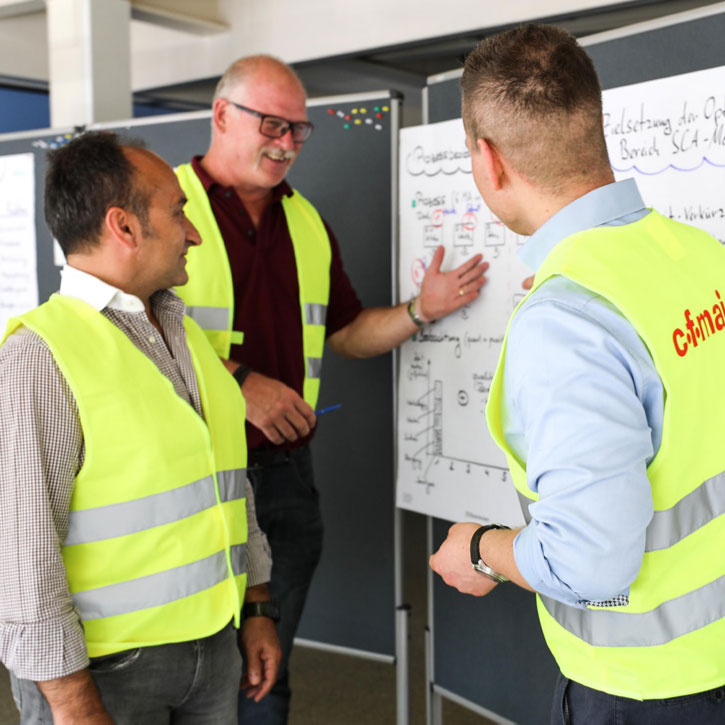
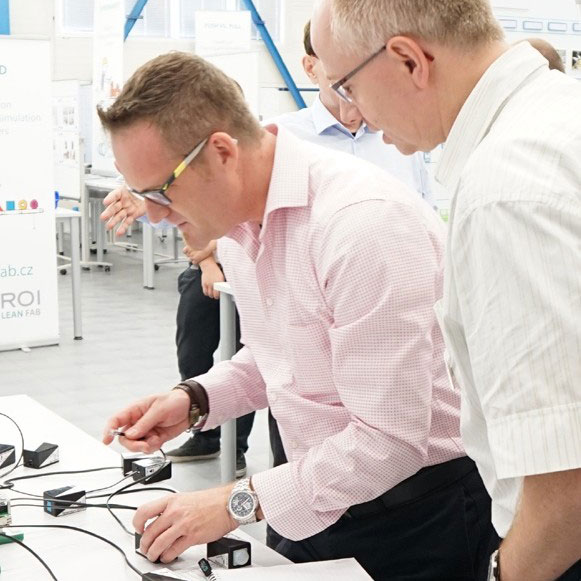
“An instructive seminar with the perfect combination of theory, practice, simulations and discussions.”
Michael Walther
Lean digital simulation of IoT tractors
Future lean digital managers will learn which Industry 4.0 technologies are state-of-the-art and whether it makes actual sense or is realistic to use them. Along the way, they will develop an appreciation for interfaces between Lean and Industry 4.0 and focus on how to use the best of both worlds to achieve their goals. That’s especially useful when the goal is to manage complexity. While lean reduces complexity using simple tools and methods, Industry 4.0 technologies create total complexity. Yet they simplify the user interface. Participants take part in an “IoT Tractor Simulation“ to test out the look and feel of such interfaces and to see for themselves what the factory of tomorrow will be capable of. Over the course of three rounds, this will demonstrate through time-lapse camera the development of a traditional industrial firm producing piecework:
- Round 1, Lean Basic: In a synchronized, paper-based lean manufacturing line, a tractor variant will be produced using methods like one-piece flow and visual management.
- Round 2, Lean with Variants: Over 10,000 configurations increase complexity and create both serious cycle-time overruns and high reworking rates. Manufacturing performance falls drastically because employees, still mired in paper-based lean production, are only able to manage the variance level with great effort. This causes the lean elements to be increasingly inefficient.
- Round 3, Smart Assembly Line: With the same number of variants, participants now work with IoT and Industry 4.0 technologies. They use interlinked technologies and IT systems to manage this complexity while learning that smart products, real-time visualization, and intelligent routing are some of the ways that provide further help.
Digitalizing a value stream
In this training segment, participants identify relevant parameters for Lean 4.0 in production. One use case will take a look at the value stream of a die-cast component overmolded with plastic. A huge amount of data is generated in modern injection-molding machines during manufacturing (e.g., pressures, times, temperatures, etc.). Emerging lean digital managers will then see that the impact from both upstream and downstream processes on product quality – such as handling, transport, storage, heat treatment, reworking – is just as important to record and evaluate, but that doing so digitally is much more difficult. Instead of focusing on fragmented data islands, participants will increase their understanding of the challenges and opportunities of creating a completely digitalized value stream.
Designing a digital process twin
This is the focus particularly at workstations for digital process twin simulation during the course. Participants will convert workpieces, products, or transport containers using sensors into data suppliers. They will also learn how to digitally record manual process steps – for instance when transporting molds between furnaces, moving equipment at a station, or doing manual rework. Using an IoT platform, they will visualize the resulting metrics and then propose actions to improve cycle times or correct any quality problems.
Lean digital manager as a conductor of added value
But a lean digital manager needs more than just technological expertise in combining Lean and Industry 4.0. He or she should also know how to use this knowledge as a manager who brings out the best in his or her employees’ capabilities. After all, the question of whether technologies and tools will create value, and if so to what extent, ultimately depends on how skilled and motivated the employees are to actually use them. So these items should be incorporated into the transformation process from the start. In addition, managers should help their employees find their footing in a quickly and constantly changing world, while communicating openly and – instead of deciding everything on their own – fostering the decision-making process as a team.
In the ROI-EFESO trainings, participants enhance these management skills, taking into account various areas of action. Here are some examples:
- How is the role of management changing in a VUCA world? What new management concepts are needed, what concepts that have worked in the past will continue to work in the digitally connected age?
- How can we be true to the principle of “Go there and have a look” in a global network of industrial locations? What are the differences and commonalities between “flexible” and “lean” management methods?
- How can managers meaningfully engage with the increasing availability of information, for instance in shop floor management? What combination of digital and analog media or communication modes is best for managing workers?
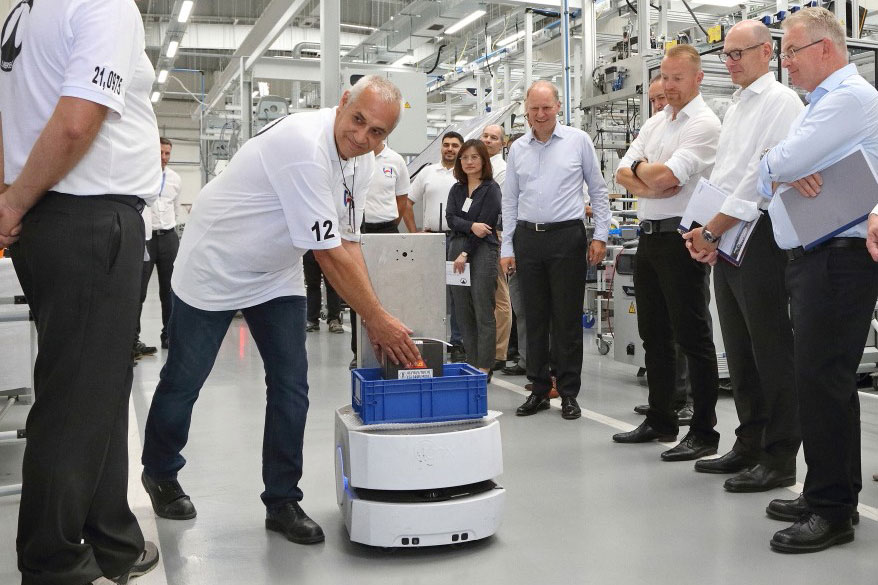
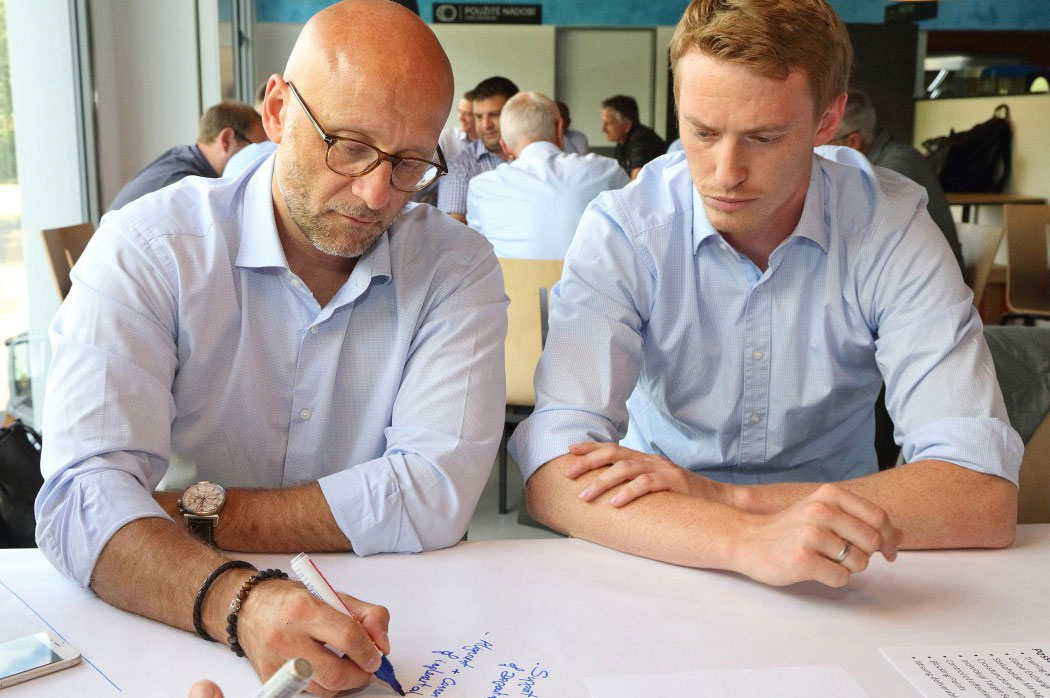
„The inspirations of the leadership seminar were particularly valuable, especially regarding to the successful integration of employees in the change process caused by digitization.“
Andre Zschocke
Managing complexity instead of acting from fear
In summary, ROI-EFESO’s Lean Digital Manager program, which addresses these and other areas, teaches the right way to tackle the challenges presented by the increasing complexity of everyday manufacturing processes. It combines the essential lean concept – reducing waste and complexity – with practical ways to enhance lean practices using Industry 4.0 technologies. This enables lean digital managers move into the future while facing increasing complexity without fear and embracing their new role as masters of complexity.
